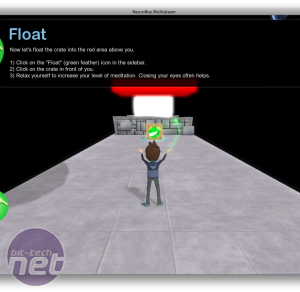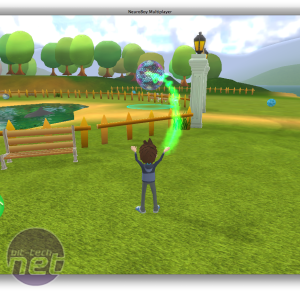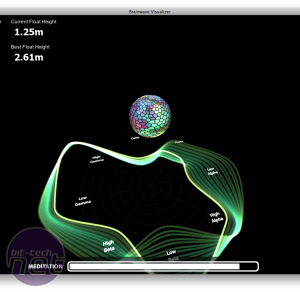
The many uses of mind control
A range of applications for the technology is now emerging. Take the U.S. archery team. One coach, Mel Nichols, has been using the Neurosky headset for around 18 months with some of his athletes, tracking their focus and relaxation levels as they train. It has led to some unexpected discoveries.“We noticed than when their best scores come through, there is both attention and meditation,” he says. “We want them focused on what they need to do, but we still want them relaxed at the same time.”
Archers can see if they really are focusing as intently as they think, and even what they need to do to reach that sweet spot where attention and calm intersect.
“In the middle of the shot, it’s how I stare at the target and how my arms feel with my back and my grip and everything – it’s a specific type of feeling,” says Heather Koehl, a USA Archery resident athlete.
But one of the most active fields for brain-computer interfaces is gaming. A headset made by a firm called BCInet can be used with pre-existing titles such as Half Life and Quake Wars. And a few headset-only games have already been released for the Emotiv and Neurosky headsets, such as Broodin’ Bash, a PC title that costs $10 on the Neurosky web site. Players with headsets take on the roles of two rival girls – a goth and a cheerleader. The aim is to inflict harm on the other player, ruining their appearance or simply killing them, by concentrating on them.
Another firm, MindGames, is developing games for the iPhone and Facebook which are compatible with the NeuroSky and Emotiv headsets. The iPhone app, named Tug of Mind, asks players to upload photographs of people who make them anxious, such as their boss, and then try to relax while looking at the picture. The aim of the game is to become so relaxed that the character smiles. Still, the company’s ambitions are a little loftier – they hope to teach people how to control their negative emotions.
“In order to play successfully you end up cultivating the ability to regulate these states of minds,” says MindGames co-founder Deepa Lyengar. “We use the phrase ‘gaming with benefits.’”
Other uses are more directly therapeutic. Researchers at the University of Wollongong in Australia have trialled specially designed games that will train children with attention-deficit disorder to become more focused.

MSI MPG Velox 100R Chassis Review
October 14 2021 | 15:04












Want to comment? Please log in.